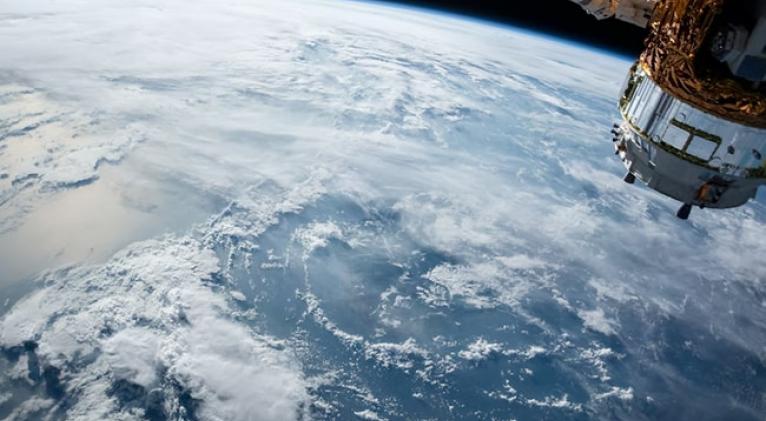Space Junk Will Block Out Stars And Prevent Detection Of Alien Life, Experts Warn
especiales

Experts have recently warned that an abundance of satellites is threatening to "clog up" the night skies, blocking out stars and leaving astronomers unable to make observations or detect alien life.
According to The Independent, more than 8,000 satellites are orbiting the Earth, which is a four-fold increase since 2019. This rate is only expected to increase as the commercial global space industry grows.
Notably, around 400,000 satellites have already been approved globally for low Earth orbit. While satellites are used for crucial means of connectivity and navigation to climate change observation studies, experts have said there is one "major issue" that an excess of the technologies poses.
As per The Independent, Tony Tyson, professor of physics and astronomy at the University of California, said, "If you just went out in a dark place somewhere and looked at the sky in 2030 it would be a very macabre scene. The sky will be crawling with moving satellites and the number of stars that you would see are minimum, even in a very dark sky. It's a major issue."
Last week, the Royal Astronomical Society (RAS), the UK Space Agency and the Department for Business also met for the Dark and Quiet Skies conference in a call for closer regulation. Dr Robert Massey, Deputy Executive Director of the RAS, said there has been "a paradigm shift" in how we view space.
Also Read | Indian-Origin British Army Officer Preet Chandi Sets New Record For Polar Expedition
He stated, "There is the real prospect that we could see hundreds of thousands of satellites in orbit by the end of the decade. Frankly, searching for the origin of life may be a long shot but detecting signals from other civilizations becomes harder if you have an incredibly powerful and noisy sky. Unlike light pollution, you cannot get away from it, because wherever you are on Earth you can see the sky."
"If we leave this unchecked, I think this is also a cultural issue. If you get to the point where satellites make up about 10 per cent of the stars in the sky moving around, I think that's fairly intrusive, and it is a damage to that natural landscape," he added.
According to the Express, experts explained that part of the issue is that satellites reflect sunlight back down to Earth, which has already been causing problems for astronomers. This is because bright streaks from the light form when satellites drift in front of the optical field. Another issue is that internet satellites are capable of interfering with sensitive radio telescopes.
Also Read | Photo Of US Police Dog Goes Viral After It Was Accused Of Stealing Officer's Lunch
The Vera Rubin telescope, located Vera C. Rubin observatory in Chile, is already facing major issues from satellites. It is set to embark on a 10-year survey next year and its purpose is to search for tiny changes in the movements of 37 billion stars and galaxies. However, early testing has revealed that around 40 percent of frames will be affected during twilight hours.
Ken MacLeod, an independent expert, has reportedly calculated that when all the internet constellations are in operation there will be around 16,000 decaying internet satellites at any one time that need to come out of orbit.
"They will cause re-entry fireballs," he said. "If we really believe the numbers of how many are going to be falling, that's about 60 every day and that's much brighter than magnitude 7 (the faintest starlight visible with the naked eye) so they can cause troubles with all those observations," Mr MacLeod added.














Add new comment